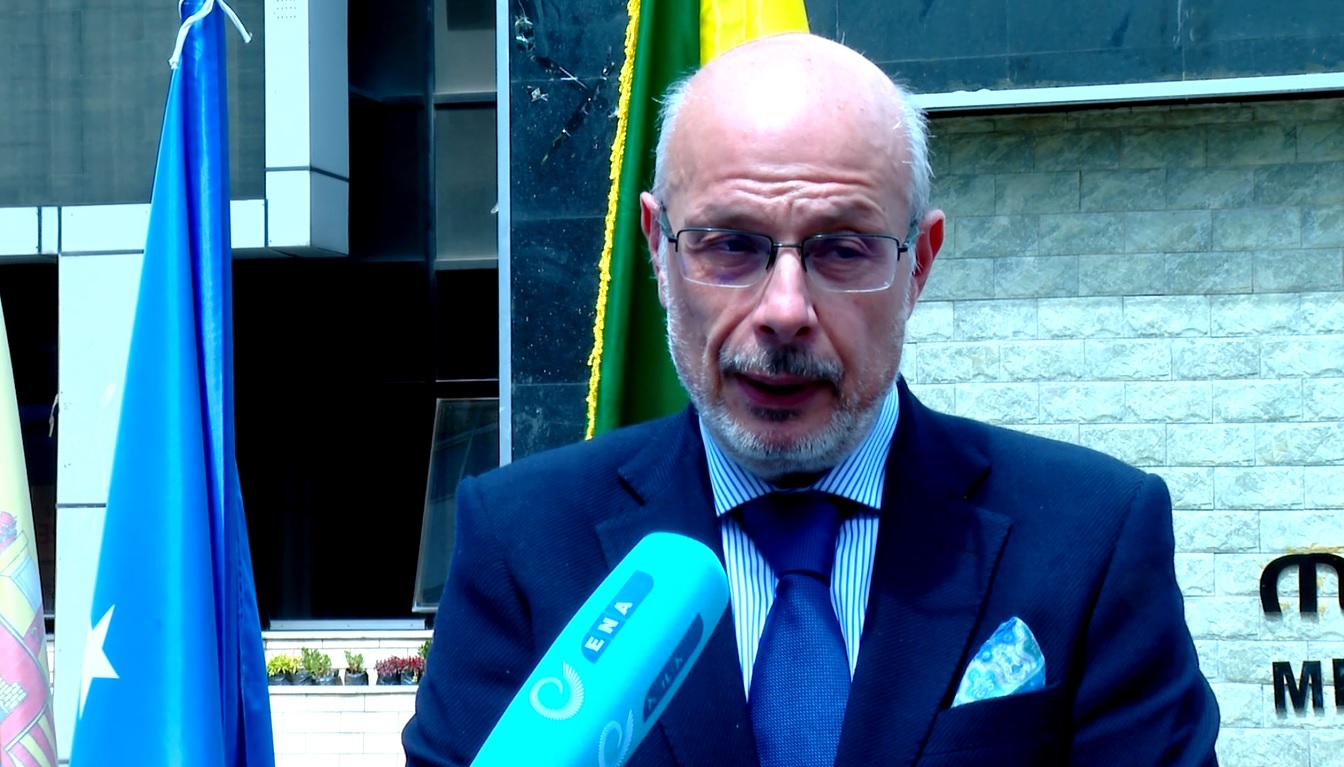Spain Shows Strong Will to Boost Partnership with Ethiopia

Strengthening Ties: Spain and Ethiopia Deepen Collaboration
Addis Ababa, October 8, 2025 — The Spanish ambassador to Ethiopia has reaffirmed his country’s commitment to strengthening diplomatic, developmental, and economic ties with Ethiopia. During an exclusive interview, Ambassador Guillermo López Mac-Lellan emphasized the growing momentum in bilateral relations and Spain’s strategic interest in expanding cooperation across various sectors.
Spain is looking to build a more comprehensive partnership with Ethiopia, one that supports long-term development, according to the ambassador. He highlighted that these efforts are aligned with Ethiopia’s national priorities and Spain’s global development agenda.
Expanding Cooperation Across Sectors
The ambassador noted that Spain is actively working with Ethiopia in areas such as climate change mitigation, resilience-building, and broader sustainable development. These initiatives aim to create a more resilient and sustainable future for both nations.
In addition to environmental efforts, the ambassador emphasized the importance of political, economic, and social cooperation between the two countries. He pointed out that Spain is committed to fostering inclusive development through various programs and initiatives.
Focus on Gender Equality
A particular emphasis was placed on gender equality. The ambassador stated that empowering Ethiopian women is essential for achieving inclusive development. “Many Ethiopian women are now empowered to take on leadership roles and contribute meaningfully to the country’s development journey,” he said. Spain is proud to support initiatives that foster women’s active participation in economic and social spheres.
Health Sector Collaboration
In the health sector, Spain is collaborating with Ethiopia by providing tangible support through the supply of medical equipment and offering professional training programs. These programs aim to build local healthcare capacity. According to the ambassador, this cooperation will be expanded to regions to further strengthen the health system and improve access to essential services.
Supporting Refugees and Host Communities
The ambassador also mentioned Spain’s involvement in projects designed to improve the quality of life for both refugees and host communities in Ethiopia. These include initiatives to expand access to clean water, promote solar energy, and enhance basic social services. Such efforts reflect Spain’s commitment to humanitarian aid and sustainable development.
Multilateral and Bilateral Cooperation
Spain is determined to strengthen both bilateral and multilateral cooperation with Ethiopia. This includes working closely with international organizations and other stakeholders to address shared challenges and opportunities.
Through these collaborative efforts, Spain and Ethiopia are building a stronger foundation for mutual growth and development. The continued engagement between the two nations reflects a shared vision for a more prosperous and sustainable future.

.svg/300px-Nigeria_(orthographic_projection).svg.png)
